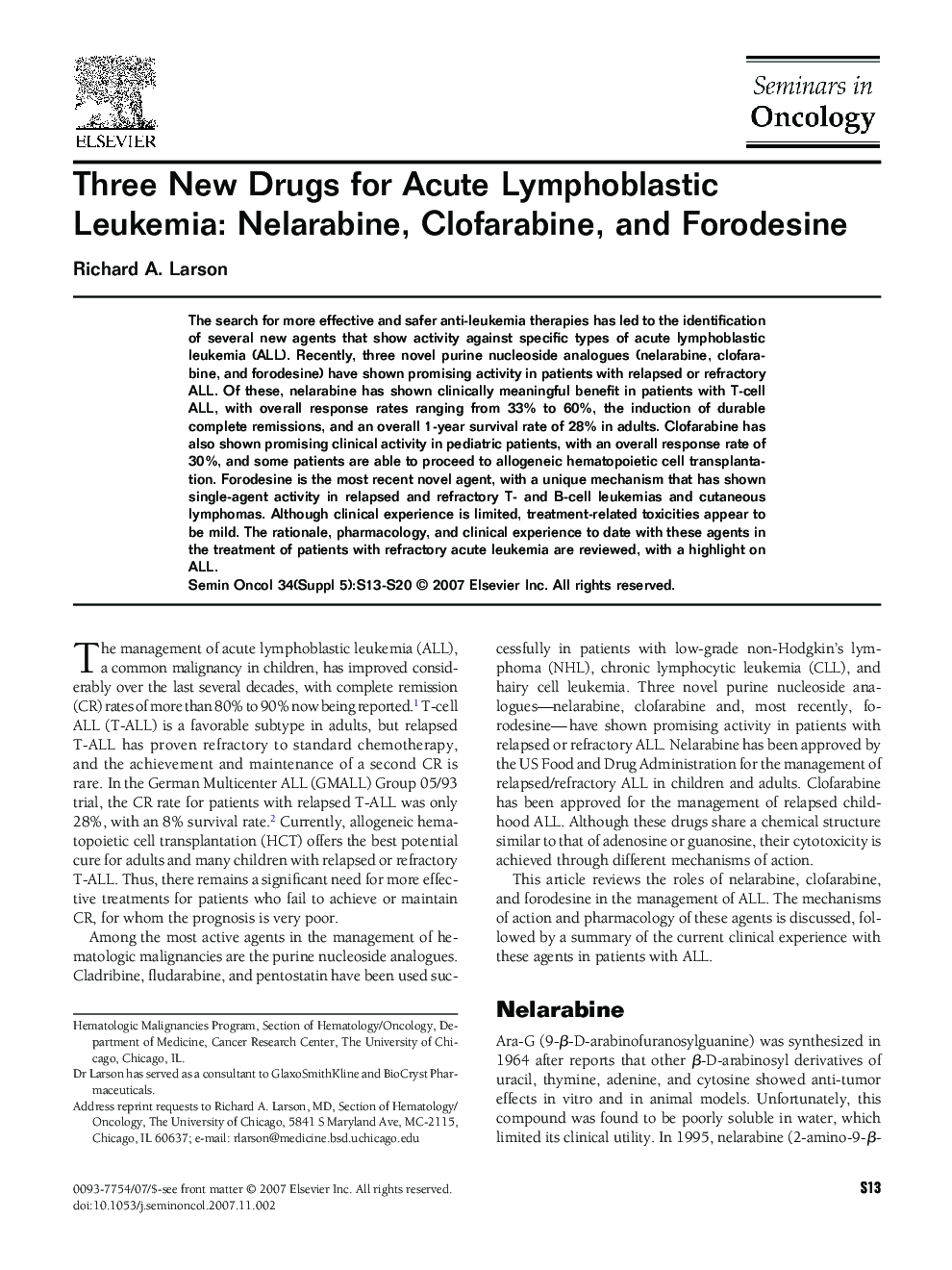| Article ID | Journal | Published Year | Pages | File Type |
|---|---|---|---|---|
| 2163084 | Seminars in Oncology | 2007 | 8 Pages |
Abstract
The search for more effective and safer anti-leukemia therapies has led to the identification of several new agents that show activity against specific types of acute lymphoblastic leukemia (ALL). Recently, three novel purine nucleoside analogues (nelarabine, clofarabine, and forodesine) have shown promising activity in patients with relapsed or refractory ALL. Of these, nelarabine has shown clinically meaningful benefit in patients with T-cell ALL, with overall response rates ranging from 33% to 60%, the induction of durable complete remissions, and an overall 1-year survival rate of 28% in adults. Clofarabine has also shown promising clinical activity in pediatric patients, with an overall response rate of 30%, and some patients are able to proceed to allogeneic hematopoietic cell transplantation. Forodesine is the most recent novel agent, with a unique mechanism that has shown single-agent activity in relapsed and refractory T- and B-cell leukemias and cutaneous lymphomas. Although clinical experience is limited, treatment-related toxicities appear to be mild. The rationale, pharmacology, and clinical experience to date with these agents in the treatment of patients with refractory acute leukemia are reviewed, with a highlight on ALL.
Related Topics
Life Sciences
Biochemistry, Genetics and Molecular Biology
Cancer Research
Authors
Richard A. Larson,
